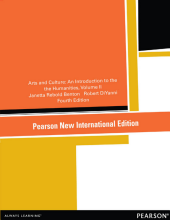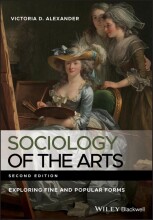Gatekeepers - Negus (2002): The Work of Cultural Intermediaries and the Enduring Distance between Production and Consumption
4 important questions on Gatekeepers - Negus (2002): The Work of Cultural Intermediaries and the Enduring Distance between Production and Consumption
According to Negus (2002), the gatekeeper concept, in connection with the cultural and creative industries, implies certain analytical pitfalls, but at the same time, it also has things to offer.
What are the 3 most prevalent analytical pitfalls Negus mentions?
- Assignment issues.
- Which occupations function as gatekeepers?
- Complexity of cultural production.
- The gatekeeper concept ignores the complexities of cultural production.
- I.e., it assumes that cultural products would simply appear at the 'gates' of the cultural corporations where they are either admitted or excluded.
- Widening gap production & consumption.
- Cultural intermediaries reproduce rather than bridge the gap between production and consumption.
- They merely offer the illusion of bridging the gap.
Negus (2002) talks about strategies of in- and exclusion in and through the process of gatekeeping.
What is the exact connection he makes and how is this important?
- Negus states that it is important to look critically at the practices of in- and exclusion in the process of gatekeeping.
- How does it occur and how does it differ among kinds of arts or industries?
- Anecdotally, there is much evidence suggesting that various creative industries are influenced by very strong family connections.
According to Negus (2002), the gatekeeper concept, in connection with the cultural and creative industries, implies certain analytical pitfalls, but at the same time, it also has things to offer.
In what way may the gatekeeper concept be useful, according to Negus?
- The gatekeeper concept has analytical value in that it highlights how cultural products are produced and disseminated through well-established routines, some of which require little creative effort.
- E.g., up-dating old stories, rewriting old songs, re-packaging old programmes or novels.
- Higher grades + faster learning
- Never study anything twice
- 100% sure, 100% understanding
What are the four main points of relevance of Negus' (2002) paper: Cultural Intermediaries and the Enduring Distance Between Production and Consumption?
- Counterintuitive value.
- Gatekeepers and the gatekeeping concept matter, but not in the way that we would expect.
- Routine-based.
- Gatekeeping, while often seen as reflexive or creative activity, can be much routine-based.
- Analyse routine and habitual processes.
- To understand how and which cultural products are produced and disseminated, we need to analyse the inner-institutional practices and decision making within cultural corporations.
- Think of practices of in- and exclusion.
- Inequality understated.
- Studies of gatekeeping should prioritise inequality.
The question on the page originate from the summary of the following study material:
- A unique study and practice tool
- Never study anything twice again
- Get the grades you hope for
- 100% sure, 100% understanding































